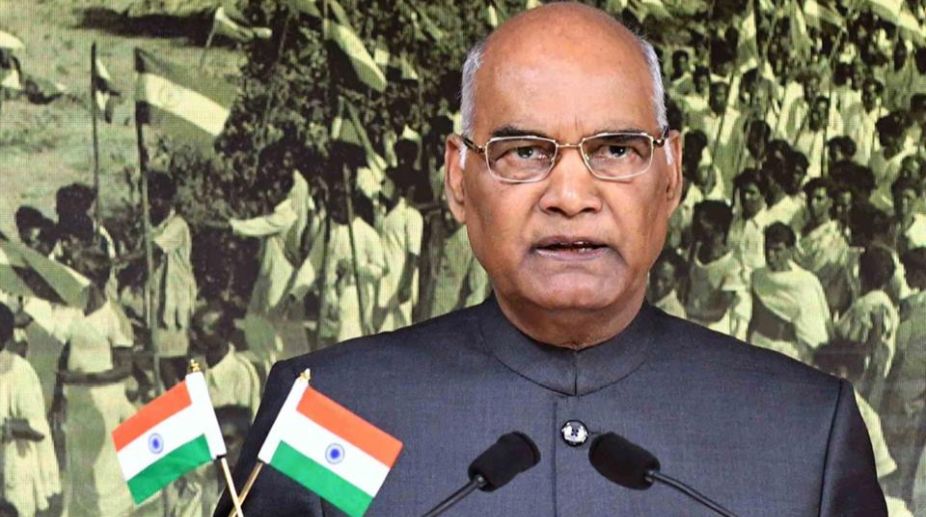Jharkhand unveils ambitious plans for education, science and innovation
The Jharkhand government has unveiled ambitious projects aimed at propelling the state into a new era of education, science, and innovation.

President Ram Nath Kovind (Photo: Facebook)
At a time when minority communities and their institutions feel they are under attack from the “lunatic fringe”, and there is an attempt at negative projection of any school/college which has a “Saint” prefix to its name, the President has sent out a signal that is reassuring.
That he accepted an invitation to participate in the golden jubilee celebrations at Jesus and Mary College in the Capital was significant, his message was even more uplifting. Noting that the Christian community had carved out “a special role for itself in education”, Ram Nath Kovind reminded the nation that missionary institutions had become symbols of scholarship and academic excellence. Pointing to the part education played in nation-building he observed, “I must note that the Christian community, whose history in India goes back 2,000 years, has contributed so much to our shared culture and has carved a special role.”
Advertisement
The President also spoke of the commonality of religious aspirations, which he illustrated by quoting from both the Upanishads and the Gospel of St John, which focused on “spreading the light”. It is indeed rare for persons with an RSS background to acknowledge the scripture of other religions, let alone quote from them. Turning to specifics, the President recognised the role of JMC over the past five decades, and observed that “education of girls is much more important than we realise.
Advertisement
An educated girl contributes to the economy at work, she also ensures that other children in her famliy, as well the family she may have married into, are educated. The next generation is made responsible and educated through the education of girls”. Stressing that education went beyond acquisition of knowledge, Kovind observed that “it is much more critical to use the knowledge one gets from education to enhance the welfare of the less-privileged among us. India is in the midst of multiple transformations.
In the first half of the 21st century we have the largest young people of any country. It is crucial to harness that energy and use it to make our country a developed society.” Kovind has been speaking on only a few occasions, hence the extensive quotations in this commentary that put at rest any doubts that he would not match up to the “vision” of his illustrious predecessor.
That he opted to articulate that vision at a function of a minority institution is a message to both the fringe elements and the minorities ~ he does not view society from a split perspective.
Whether the government and its political backers will appreciate the finer points he made is yet to be determined (his predecessor’s pleas for an end of divisiveness went unheeded), but he did display the moral and political fibre to emphasise his nonpartisan credentials.
Advertisement